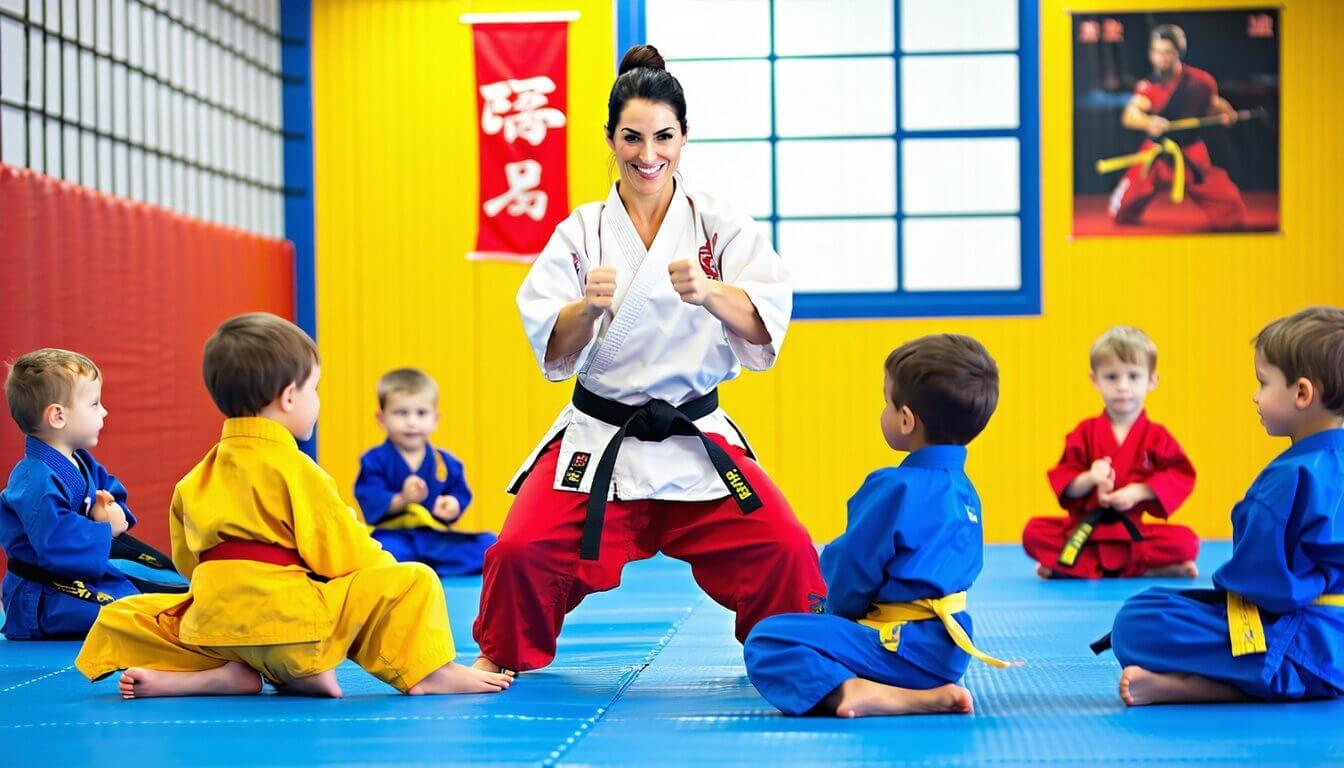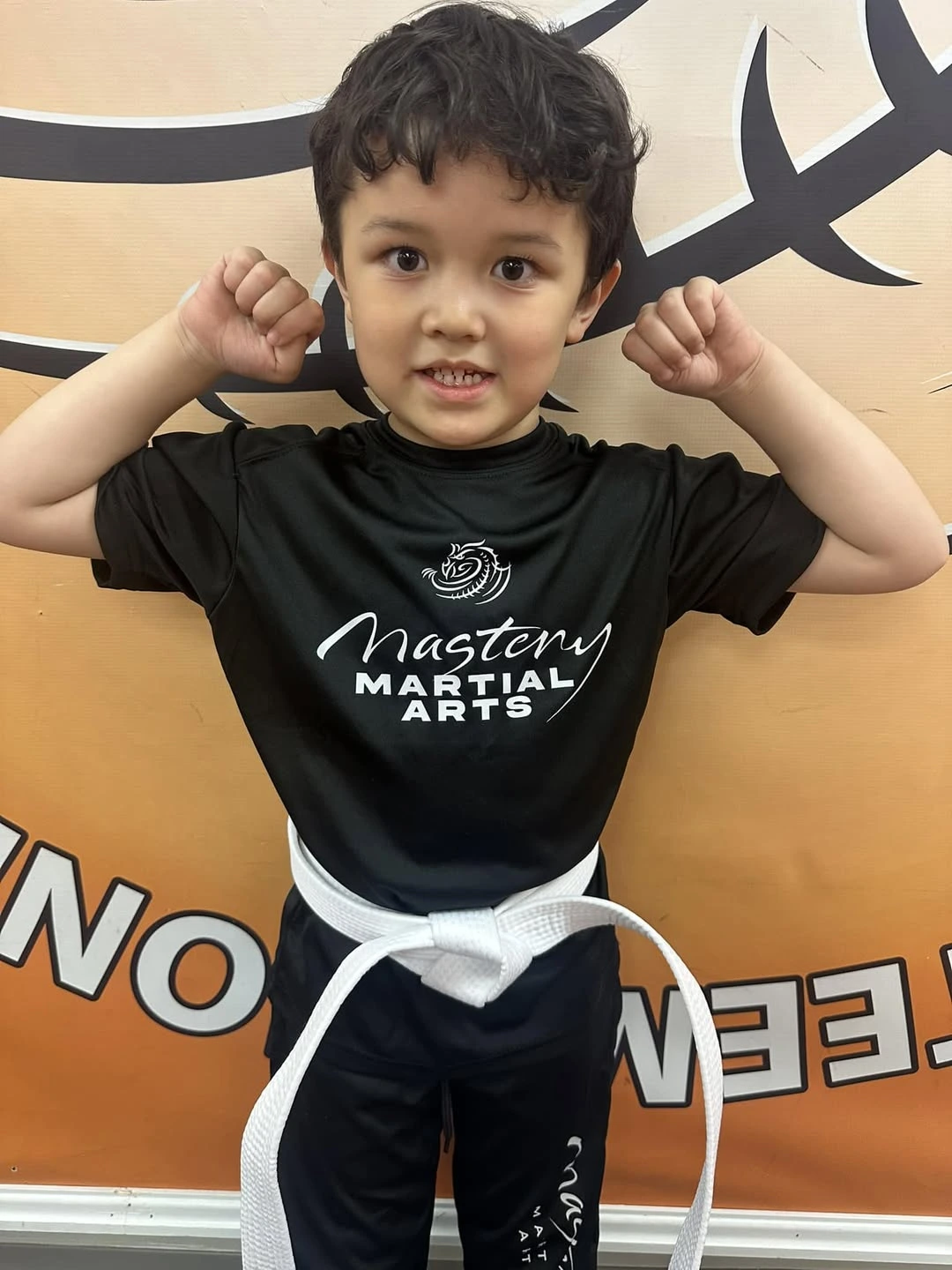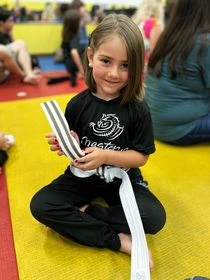Discover The Key Benefits
Children’s karate instruction can be an excellent way to help your child stay active, grow in confidence, and have fun. One comprehensive review of 16 studies on martial arts found that kids who practiced karate, judo, taekwondo, or aikido improved their agility, strength, flexibility, and balance. Good news—this is easier than it sounds when classes are tailored to your child’s age group and developmental stage.
In karate, young students learn basic techniques and sequences called kata, which help them move confidently and improve coordination. As they master these moves, your child can gain:
- Better coordination and balance
- Enhanced ability to focus and listen
- Improved physical fitness and endurance
- Greater confidence through goal-setting
- Respect for instructors and peers
Match Training To Age Groups
Karate instruction works best when it respects the changing physical, mental, and social needs of children between the ages of 4 and 12. Younger kids thrive with fun movement drills to boost motor skills, while older children can handle increasingly complex techniques.
Ages 4–6: Fun And Movement
At this stage, short obstacle courses and creative games like animal walks keep kids engaged. These activities develop balance and strength without feeling like a chore. They also spark social interaction, which is vital for children still learning to share and take turns.
Ages 7–9: Skill Building
Your child’s motor skills and social awareness grow rapidly from seven to nine. Karate instructors can introduce more detailed practice, such as partner drills, technique repetition games, or friendly relay races. These methods help children grasp self-discipline and understand their role within the group.
Ages 10–12: Advancing Techniques
Around ages 10 to 12, kids can tackle more challenging skills. This might include beginner-level sparring or more structured kata. They are also ready for bigger goals and improved self-regulation. With strong coordination in place, your child can have fun pushing boundaries in a healthy, supervised setting.
Build Confidence And Discipline
Karate goes beyond kicks and punches. It blends physical skill with mental resilience, helping your child handle everyday challenges. In fact, parents often see improvements in focus at school, self-control, and respect for others. In structured karate classes:
- Children set personal goals and celebrate progress
- Instructors balance encouragement with constructive feedback
- Students learn the value of respect and good etiquette
- Life skills like teamwork and perseverance take center stage
If you are also searching for local options, feel free to browse kids karate classes near me to find a suitable location that fits your schedule.
Choose The Right Program
When selecting a children’s karate program, look for instructors who understand each age group’s developmental needs. Coaches should introduce new skills gradually while keeping training fun and varied. In Troy, Michigan, Mastery Martial Arts stands out for its tailored kids’ classes. Their programs include age-specific sessions that blend karate fundamentals with character growth.
Discover more about their approach by visiting:
Mastery Martial Arts – Troy Kids Karate Classes
They combine structured teaching with a friendly atmosphere, so your child can practice essential techniques safely while building self-confidence every step of the way.
Recap And Next Step
Age-appropriate karate lessons give your child a practical outlet for their energy and a chance to learn discipline, respect, and goal-setting. Whether your little one is four or edging into the tween years, children’s karate instruction meets them where they are.
- Start with a fun, movement-oriented approach.
- Progress to more advanced karate techniques once the basics are solid.
- Emphasize discipline, confidence, and respect throughout training.
- Pick a program that balances physical activity with character development.
By choosing a supportive karate class, you can help your child thrive physically, mentally, and socially. It’s a wonderful opportunity to boost their confidence while instilling healthy habits that can last a lifetime.





0 Comments